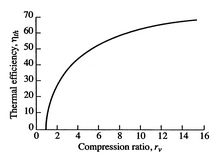OK thanks Nords. I was just trying to get a handle on how Zathras was calculating that 1.5 cents per mile number he gave. That's a very attractive number if it doesn't have strings attached (like an assumption your system is already fully amortized). If it could be readily duplicated by the average home owner/EV owner, I'm sure it would be a very popular arrangement where conditions would allow it.
It's a niche... and when you're paying 22-25 cents/KWHr to import the oil across 2500+ miles, it's a popular niche. But solar & wind construction have exploded around here in the last 12 months.
Nords,
How many kwh did your solar panels generate in the past 12 months? And what is the total capacity of your panels?
In the last 12 months we've generated 3168 KWHrs, from a low of 230 in February (28-day month) to a high of 298 in August. We have 45 panels on the roof for a total of about 3300 watts on a 3000-watt inverter. Most of the panels are 1990s vintage of 55-60 watts and 16 of them are 2005-model factory seconds of 115 watts. It's the computer equivalent of a rooftop full of 486s and Pentium PCs.
The technology has moved ahead smartly in the last five years with higher conversion efficiency and higher power density. Inverters are a
lot better. Today you could have the same rating and generate more power from about 10 panels taking up about 60% of the roof space used by our current system-- admittedly at a considerably higher price than we got from Craigslist, eBay, and DIY.
I've calculated that we'd need another 3-4 kilowatts to recharge an EV. We'd either need to build a pergola on the south side of the house and roof it with the aforementioned 10-14 panels (plus a second inverter or individual panel microinverters), or replace our "old" array with modern equipment. Spouse favors the pergola for décor reasons and I think it's the cheaper approach.
HECO $16/month: Is it the same as the connection charge whether you have net metering or not?
[-]Yes.[/-] Oh, no, that would be way too simple and too many customers would understand what they're actually paying. On the rare months when we generate more than we use, our bill will say "Mimimum charge $16". That's all.
Of course now that our kid is in college, those months may become more frequent.
During a typical month we'll consume a net of 30-50 KWHrs. For example, last month we generated 277 KWHrs and bought another 42 KWHrs from HECO. Of course the reality is that we were generating way more than we used during most days and then sucking it back from HECO overnight or on rainy days. That's the beauty of net metering-- using HECO as your storage battery.
For that month we were charged the following:
$8.00 CUSTOMER CHARGE
$3.49 NON-FUEL ENERGY
$3.73 BASE FUEL ENERGY
$1.07 INTERIM INCREASE 2009
$1.08 INTERIM INCREASE 2007
$0.20 PBF SURCHARGE
$2.12 ENERGY COST ADJUSTMENT
$0.01 IRP COST RECOVERY
$19.70
Reading the fine print on HECO's website, using 42 of their KWHrs means we paid a "base fuel energy", a "PBF surcharge", and an "energy cost adjustment". If we had used zero of their KWHrs then taking those off the bill works out to a net charge of $13.65.
That's lower than the $16 minimum, so HECO must have had a good month for maintenance/repairs/excess demand. Other monthly bills had higher non-fuel energy charges and IRP cost recovery charges to add up to more than $16. It'd be interesting to see if we had used zero KWHrs on that month whether they would have charged us $13.65 or $16... probably the $16. Still a bargain.
Despite all this modern hifalutin' net-energy metering and our digital meter (which can communicate with a utility over its power lines), we still have a human meter reader walking the streets. HECO's 20-year-old billing computers still don't do net-metering so they print a separate net-metering spreadsheet in our snail-mail paper bill to track the 12-month excess power generation. No complaints, though; I've heard that California's PG&E net-metering statement is almost as bad as a cell-phone bill.
Thanks for asking these questions-- they sparked a thought. Our current system uses a big-box net-metering inverter that has to sense HECO's grid voltage before it'll turn itself on and convert photons to electricity. If a hurricane or an earthquake take down HECO then our inverter won't turn on and we're out of the solar business. But writing this post makes me realize that the new microinverters may not necessarily need to sense HECO's bus voltage before they do their power conversion. If that's the case then we'd definitely want to add them to our EV-charging PV array just for the ability to generate some electricity after a hurricane. I'll have to check into their specs next time I'm talking to a solar company.
 is called the compression ratio. In terms of compression ratio, the efficiency of an ideal Otto cycle is:
is called the compression ratio. In terms of compression ratio, the efficiency of an ideal Otto cycle is: 

 , increases,
, increases,
 increases, but so does
increases, but so does
 . If
. If
 is too high, the mixture will ignite without a spark (at the wrong location in the cycle).
is too high, the mixture will ignite without a spark (at the wrong location in the cycle). 








